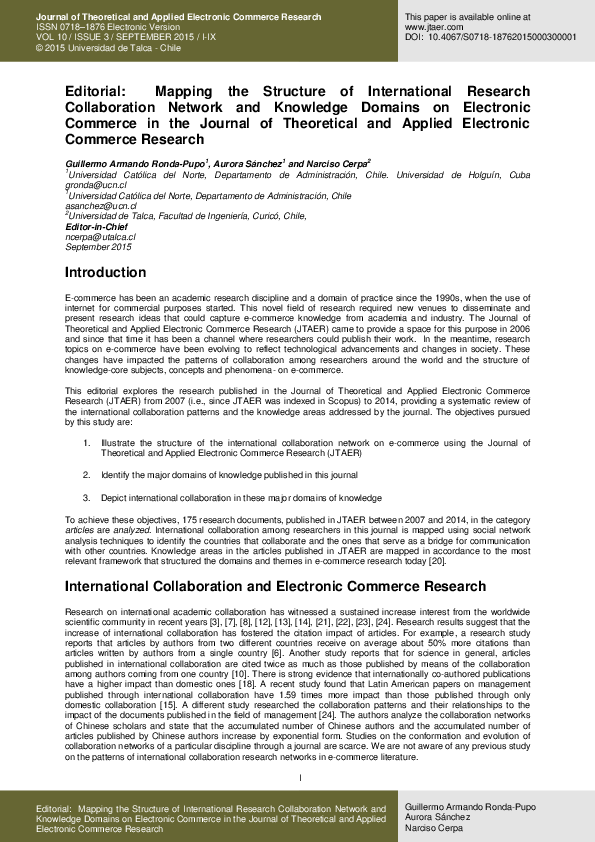基于财务比率的美国医疗保健行业破产风险分析:机器学习分析
IF 5.1
3区 管理学
Q1 BUSINESS
Journal of Theoretical and Applied Electronic Commerce Research
Pub Date : 2024-05-30
DOI:10.3390/jtaer19020066
引用次数: 0
摘要
破产风险预测是经济学和金融学领域的一项艰巨挑战,尤其是在对经济有重大影响的医疗保健行业。新兴的医疗保健电子商务领域通过技术进步和不断变化的法规持续发展,带来了更多的复杂性。我们收集了 1265 个美国医疗保健行业的财务数据,使用多类分类机器学习模型,根据不同行业子行业和市值的 40 个财务比率来预测破产。调整后的准确率非常高,超过了 90%,高性能指标也证明了梯度提升模型在破产预测方面的稳健性和出色的预测能力。结果还证明了基于财务比率预测破产的能力和敏感性。Altman 模型强调投资回报率(ROI)是预测医疗保健行业破产风险的最重要参数。Ohlson 模型指出,资产回报率 (ROA) 是专门用于预测行业细分领域破产风险的重要比率。此外,该模型还强调了资产回报率和企业价值与税息前利润(EV/EBIT)比率作为基于市值预测破产的重要参数的重要性。认识到这些比率,就能做出积极主动的决策,从而增强抗风险能力。我们的研究结果有助于制定明智的风险管理策略,从而在 2022 年甚至全球范围内的危机中更好地管理医疗保健行业。本文章由计算机程序翻译,如有差异,请以英文原文为准。
Risk Analysis of Bankruptcy in the U.S. Healthcare Industries Based on Financial Ratios: A Machine Learning Analysis
The prediction of bankruptcy risk poses a formidable challenge in the fields of economics and finance, particularly within the healthcare industry, where it carries significant economic implications. The burgeoning field of healthcare electronic commerce, continuously evolving through technological advancements and changing regulations, introduces additional layers of complexity. We collected financial data from 1265 U.S. healthcare industries to predict bankruptcy based on 40 financial ratios using multi-class classification machine learning models across various industry subsectors and market capitalizations. The exceptionally high post-tuning accuracy rates, exceeding 90%, along with high-performance metrics solidified the robustness and exceptional predictive capability of the gradient boosting model in bankruptcy prediction. The results also demonstrate the power and sensitivity of financial ratios in predicting bankruptcy based on financial ratios. The Altman models highlight the return on investment (ROI) as the most important parameter for predicting bankruptcy risk in healthcare industries. The Ohlson model identifies return on assets (ROA) as an important ratio specifically for predicting bankruptcy risk within industry subsectors. Furthermore, it underscores the significance of both ROA and the enterprise value to earnings before interest and taxes (EV/EBIT) ratios as important parameters for predicting bankruptcy based on market capitalization. Recognizing these ratios enables proactive decision making that enhances resilience. Our findings contribute to informed risk management strategies, allowing for better management of healthcare industries in crises like those experienced in 2022 and even on a global scale.
求助全文
通过发布文献求助,成功后即可免费获取论文全文。
去求助
来源期刊
CiteScore
9.50
自引率
3.60%
发文量
67
期刊介绍:
The Journal of Theoretical and Applied Electronic Commerce Research (JTAER) has been created to allow researchers, academicians and other professionals an agile and flexible channel of communication in which to share and debate new ideas and emerging technologies concerned with this rapidly evolving field. Business practices, social, cultural and legal concerns, personal privacy and security, communications technologies, mobile connectivity are among the important elements of electronic commerce and are becoming ever more relevant in everyday life. JTAER will assist in extending and improving the use of electronic commerce for the benefit of our society.

 求助内容:
求助内容: 应助结果提醒方式:
应助结果提醒方式:


